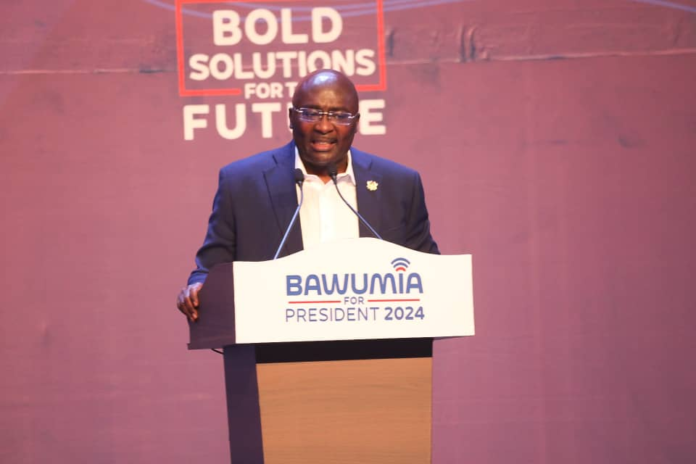Vice President Dr. Mahamudu Bawumia has made it clear that he did not have the ability to make decisions for the Economic Management Team (EMT), which he headed.
He clarified that the EMT, acting as a cabinet subcommittee, was only able to make recommendations—not carry them out.
During a speech on Wednesday, February 7, at the University of Professional Studies in Accra, Dr. Bawumia emphasized his desire to exercise his decision-making authority should he be elected president.
“I was, thankfully, appointed as Chairman of the Economic Management Team (EMT). As a sub-committee to the Cabinet, we do not have any decision-making powers, but I am very proud of the quality of advice we have been providing over the years to the Cabinet,” he stressed.
The NPP’s 2024 flagbearer also listed a number of policy proposals that would be put into effect if he won the presidency in the upcoming elections in December.
These include strengthening the participation of the private sector, improving decentralization of the budget and administrative processes, and optimizing the operation of institutions and systems to increase productivity and reduce waste.
“The move towards the private sector provision of many public services would create fiscal space of at least 3% of GDP. This represents a major paradigm shift. Additionally, an efficient system of governance will require even fewer ministers. Therefore I would have no more than 50 ministers and deputy ministers,’’ he added.
Dr. Bawumia also revealed plans to form an independent council on fiscal responsibility, with the goal of lowering interest rates and budget deficits under his direction.
“To sustainably reduce the budget deficit and interest rates, my government will enhance fiscal discipline through an independent fiscal responsibility council enshrined in the Fiscal Responsibility Act, 2018 (Act 982).”
“The Fiscal Responsibility Act will also be amended to add a fiscal rule that requires that budgeted expenditure in any year does not exceed 105% of the previous year’s tax revenue. This will prevent the experience of budgetary expenditures based on optimistic revenue forecasts which don’t materialise.”



